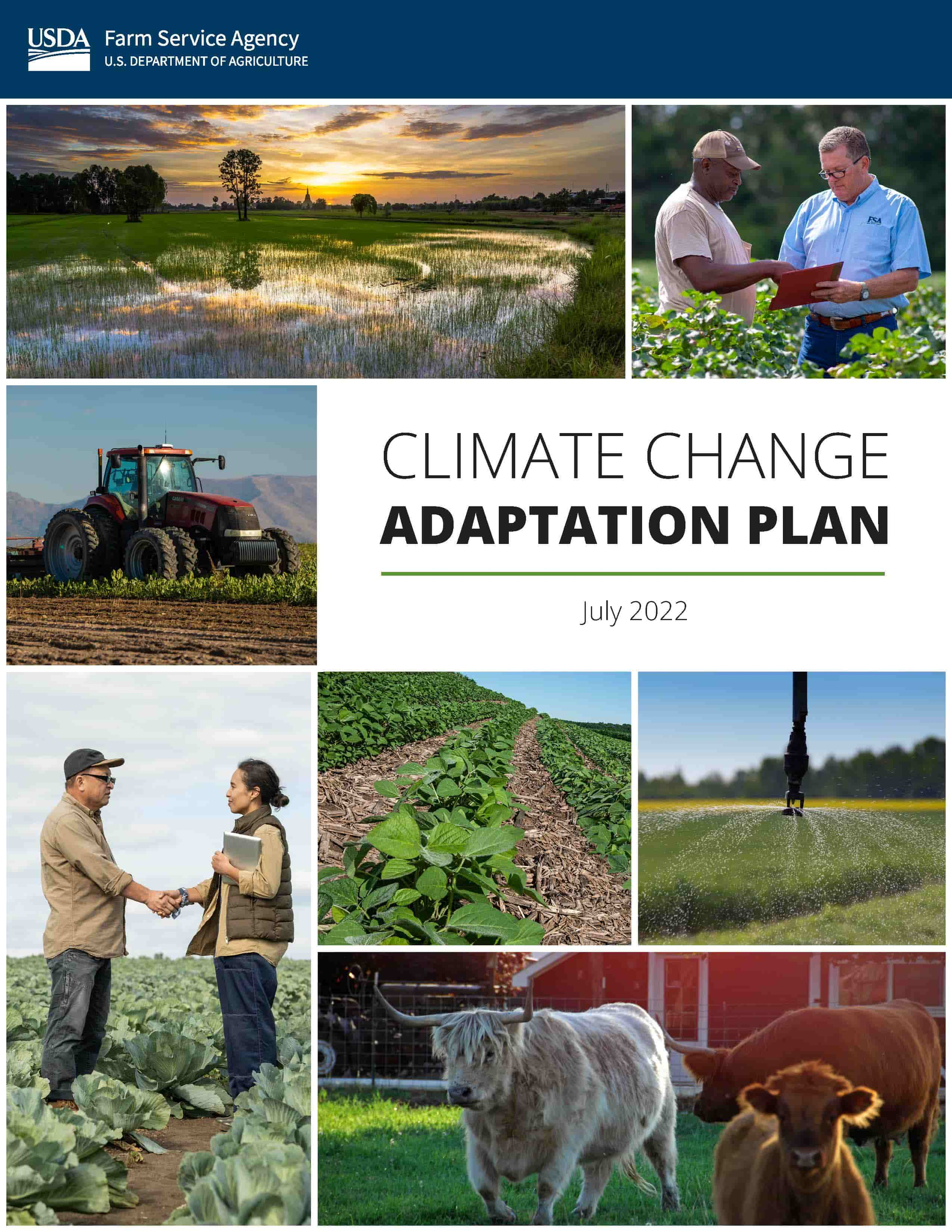Effective beginning 5/20/2025: Please note this site is under review and content may change.
Climate change has the potential to disrupt USDA’s efforts to meet its mission and goals. The vulnerability of USDA operations and programs to climate change is highly dependent on the magnitude and pattern of climate changes and their local impacts.
In October 2021, USDA released its Department-wide Action Plan for Climate Adaptation and Resilience that describes how USDA will integrate climate adaptation into its mission, programs, and operations. The plan, an update to the 2014 Adaptation Plan, identifies key vulnerabilities to the effects of climate change in USDA’s mission and establishes a framework for addressing these impacts across the Department.
In 2022, FSA finalized the FSA Climate Change Adaptation Plan, an agency-specific plan that identifies and prioritizes climate vulnerabilities and actions to integrate climate change into its programs, operations and decision-making. The plan provides a framework organized around six main action areas:
- Action Area 1: Enhance FSA climate literacy and capacity to make programs adaptation centered.
- Action Area 2: Improve science, research, and data for understanding, measuring, and tracking climate-related impacts and outcomes.
- Action Area 3: Integrate climate vulnerability assessment and adaptation planning into customer-facing services.
- Action Area 4: Address the risk that FSA infrastructure faces from climate change.
- Action Area 5: Leverage partnerships, networks, and collaboration to address existing climate change adaptation needs and innovate when considering future actions.
- Action Area 6: Address disproportionate impacts on underserved farmers and ranchers, and underserved communities.

